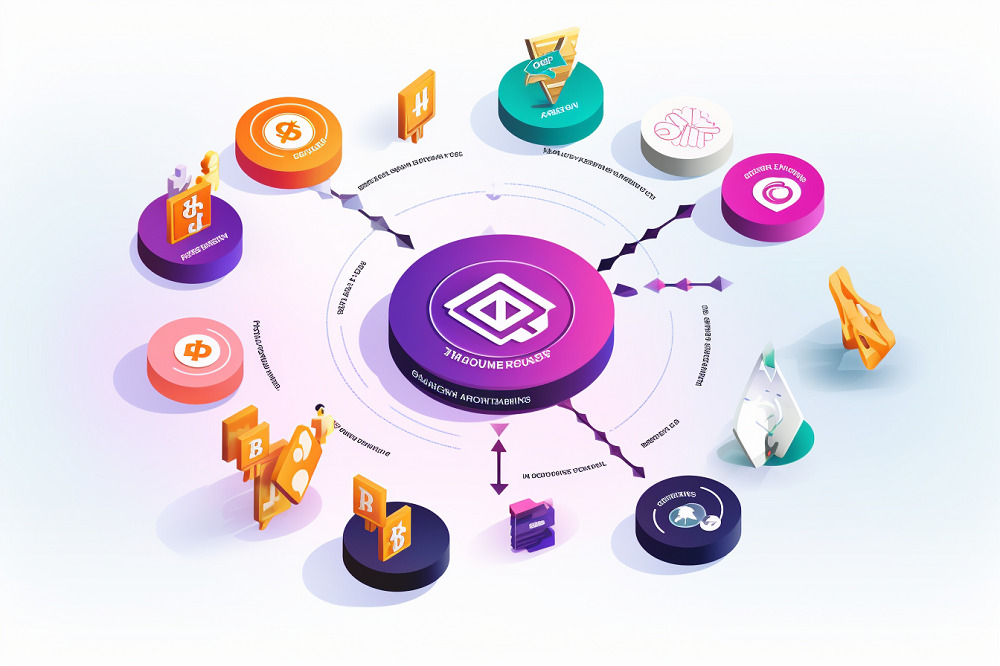Cryptocurrencies have rapidly evolved since the inception of Bitcoin, with various blockchain projects continually seeking ways to enhance functionality, security, and scalability. Two significant processes in this evolution are token swaps and token migrations.
This guide delves into the key differences between token swap and migration, explores their benefits, and the challenges they pose to projects and users.
Overview Of Token Swap
A token swap is an exchange of one cryptocurrency token for another on the same blockchain. This can be driven by several factors, such as a token upgrade to enhance security or implement functional improvements.
Types Of Token Swaps
Token swaps come in various forms, each serving a unique purpose in the blockchain world. First, there’s the “Update Migration,” which happens when a blockchain project decides to enhance its token on the same blockchain. Users willingly swap their old tokens for the upgraded version, ensuring a smooth transition with improved features.
Then, there are “Cross-Chain Swaps.” This involves moving tokens from one blockchain to another, often for better security or scalability. It’s a strategic move for projects to align with their goals and grow.
Decentralized exchanges (DEXs) bring us “Decentralized Exchanges Swaps.” Users can swap one cryptocurrency for another without intermediaries. Automated market makers (AMMs) in DEXs facilitate these trades, offering a decentralized alternative to traditional exchanges.
In decentralized finance (DeFi), we have “DeFi Protocols and Liquidity Pool Swaps.” Token swaps are crucial for DeFi platforms, allowing users to engage in various financial activities. Liquidity pool swaps further enhance this process by enabling users to provide liquidity to the platform.
The “Token Burn and Swap” mechanism compensates for burned tokens, maintaining balance while modifying a token’s features. Lastly, “Synthetic Asset Swaps” enable users to access diverse financial instruments without owning the actual assets, broadening investment possibilities in the blockchain space.
How Token Swaps Work
As an illustration, consider a blockchain project deciding to add additional functionality and enhancements to its existing coin. Holders of the older version must participate in a token swap by following the project’s instructions.
Typically, users deliver their old tokens to a specified smart contract address. In return, the smart contract automatically credits their wallet with an equal number of new tokens, ensuring a smooth transition to the updated version.
Overview Of Token Migration
Token migration, also known as a “chain swap,” refers to moving a cryptocurrency or token from one blockchain to another. Various reasons, including security updates, scalability concerns, blockchain upgrades, and advancements in interoperability, drive this migration.
Significance Of Token Migration
Token migrations hold significance as they can be community-driven, representing the collective decision of token holders to migrate to a new blockchain for ideological or strategic purposes. Projects provide clear instructions to users during migrations, ensuring a smooth transition while maintaining the tokens’ value and utility.
How Token Migration Works
Consider a blockchain project opting to move its tokens from Ethereum to a new blockchain for better features and increased scalability. The project announces the migration plan publicly, detailing specifics and providing instructions to token holders.
Users then submit their existing tokens to a specified Ethereum address, initiating migration. Once completed, an equivalent number of updated tokens are issued to the user’s wallet on the new blockchain via a smart contract. This allows the project to leverage a more sophisticated blockchain infrastructure while preserving user holdings.
Benefits And Challenges Of Token Swaps And Migrations
Token swaps play a crucial role in enhancing the functionality and adaptability of blockchain ecosystems. Allowing seamless updates with new functions contributes to the dynamic and adaptable character that defines successful blockchain projects.
Furthermore, decentralized exchanges (DEXs) leverage token swaps to make trading more efficient. This mechanism empowers users to diversify their holdings, promoting a more flexible and user-centric approach to cryptocurrency trading.
In decentralized finance (DeFi), token swaps facilitate liquidity. Thus enabling essential processes like lending and borrowing within the DeFi ecosystem. The ability to swap tokens directly on the blockchain contributes to the overall efficiency of DeFi platforms.
Moreover, token swaps foster community decision-making through participation in governance procedures. Thus, they actively contribute to shaping the direction of blockchain projects, promoting inclusivity within the community.
On the other hand, token migrations offer their own set of benefits. They provide a pathway for projects to upgrade seamlessly and improve scalability. By addressing technological restrictions, token migrations ensure a more robust and durable infrastructure for blockchain projects.
Interoperability and cooperation are vital advantages of token migrations. These processes encourage projects to engage with other blockchain networks, fostering a collaborative environment. Additionally, token migrations protect user token values and ensure continuity amid technological changes.
Token migrations also serve as a strategic tool for projects to adapt to changing industry requirements. The flexibility offered by migrating to a different blockchain allows projects to stay at the forefront of innovation, meeting the evolving needs of the cryptocurrency landscape.
Conclusion
Both token swaps and migrations come with their share of challenges. Such challenges include risks associated with smart contract implementations, user comprehension of migration protocols, liquidity issues, and governance.
